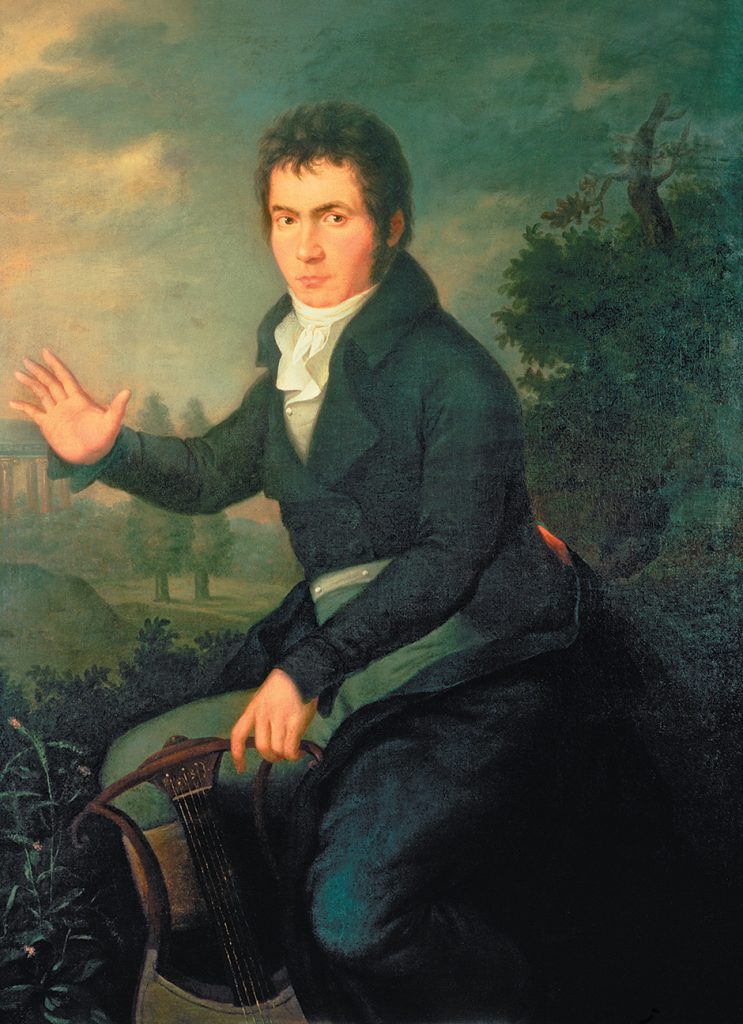
By Dennis D. Rooney
The final program of the Palm Beach Chamber Music Festival’s 28th season, which I heard July 28 at the Crest Theatre in Delray Beach, opened with a Trio in E (WQ 162) by Carl Phillip Emmanuel Bach (1714-1788), the second son of Johann Sebastian.
While acknowledging the musical foundation received from his father, C.P.E. Bach was a central figure in turning away from the Baroque aesthetic in favor of a new “expressive style” (Empfindiger Stil) that emphasized emotional intensity rather than architectonic grandeur.
It was one of the precursors of the classical style of the latter 18th century. The version of the trio heard on the concert was an arrangement for flute and violin of the original for two flutes, with the continuo played on the piano. The performers, Karen Fuller, flute; Dina Kostic, violin; and Olga Konovalova, piano, played its three movements sympathetically.
Another trio, by the British composer Michael Head (1900-1976), was heard next. Head is best known for his many songs, but he was also an examiner for the Associated Board of the Royal Schools of Music and as such toured many countries, in furtherance of which he produced several test pieces. He died in the saddle, succumbing to an unexpected illness while adjudicating in Cape Town, South Africa.
The trio was published posthumously but probably dates from the 1950s or 1960s. It seems to have been written for the Camden Trio, a group that included pianist Wilfred Parry, oboist Evelyn Rothwell (wife of conductor John Barbirolli) and bassoonist Archie Camden. The mood of the three movements is varied, with flashes of Poulenc, Prokofiev and occasional touches of Impressionism.
The opening Allegro is lively and slightly manic, suggesting the sort of music that would accompany an Ealing comedy. The Andantino quasi Allegretto is more thoughtful and lightly tinged with melancholy. The final Allegro is straightforwardly cheerful. Pianist Konovalova tamed the house Baldwin pleasingly. She, oboist Erika Yamada and bassoonist Michael Ellert, brought the work to life persuasively.
The second half was devoted to Ludwig van Beethoven’s Septet (Op. 20). However, it was preceded by a special performance of the Andante from J.S. Bach’s Brandenburg Concerto No. 4, with oboist Yamada (playing the second flute part on the oboe) and flutist Fuller. It was played in memory of Sandy Drake, the festival’s box office manager, who recently died of cancer.
Beethoven composed the Septet in 1799 and its first public performance took place the following year. It became so popular in its composer’s lifetime that he later repented of having written it. It is descended from both the serenade and divertimento, entertainment genres for winds, strings or a mixture, and usually in more than four movements. It is uncomplicated in structure and musical process, and filled with immediately appealing melodies.
The opening Allegro con brio is a sonata movement with a slow introduction, followed by an Adagio and then a minuet. The real interest in the work occurs in its final three movements: An Andante with variations; Scherzo; and a march-like finale.
Violinist Mei-Mei Luo shone in her several solos, and violist Renée Reder, cellist Susan Bergeron and bassist Janet Clippard each made important contributions. Michael Forte, clarinet; bassoonist Ellert and guest horn Szilárd Molnár, a member of the faculty of the Frost School of Music at the University of Miami (who replaced the previously announced Eva Conti), blended well with each other and the strings.
It was a pleasure to hear the work’s many unisons played so well in tune. The spirited performance capped off the season nicely.